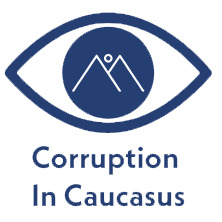The Crime
Yaqub Eyyubov, Azerbaijan’s first deputy prime minister, has been closely linked to the infamous Azerbaijani Laundromat, a money-laundering scheme revealed in 2017. The Laundromat funnelled billions of dollars through shell companies and offshore accounts to benefit Azerbaijan’s political elite. Eyyubov and his family were found to have received millions of dollars through various channels connected to this scheme. The funds were used for personal expenses, such as luxury goods and real estate, and routed through companies like Metastar Invest, which served as a front to facilitate these transactions.
The scheme involved complex layers of shell companies, one of which, Velasco International Inc., was controlled by Eyyubov’s son, Orkhan Eyyubov. These companies, registered in secrecy jurisdictions, made it nearly impossible to trace the true origins of the funds, which totaled over $9 million.
The Investigation
The investigation into Eyyubov’s involvement was part of a larger corruption probe into the Azerbaijani Laundromat. This multi-national investigative effort revealed that Eyyubov’s family used companies like Metastar Invest not only for healthcare-related payments but also to move substantial sums of money to offshore accounts in Hungary and Cyprus.
Eyyubov’s family repeatedly denied any wrongdoing, claiming the payments were for concierge medical services. However, the investigation found no evidence that Metastar or the other companies involved conducted legitimate business activities. The money trail showed that funds were funnelled into accounts controlled by the Eyyubovs, further indicating their involvement in this vast money-laundering network.
The Impact
The exposure of Eyyubov’s involvement in the Laundromat scandal added to the already significant distrust in Azerbaijan’s political elite. The country, grappling with issues of high-level corruption, faced further economic repercussions and reputational damage on the global stage. As deputy prime minister, Eyyubov was in a position of considerable power, and the revelation of his involvement in such schemes only fuelled public frustration over the widespread misuse of state funds by government officials.
High-Profile Beneficiaries
Eyyubov’s family wasn’t the only one to benefit from the Azerbaijani Laundromat. Other prominent figures, including business leaders and political elites, also received large sums through the same network of offshore companies. The funds were often disguised as payments for services that were never rendered, allowing these individuals to live lavish lifestyles while the Azerbaijani population struggled economically. Investigators traced millions of dollars linked to other prominent names, exposing the systemic corruption prevalent among the Azerbaijani elite.
Legal Proceedings
Unlike some others involved in the Laundromat scheme, Eyyubov has not faced direct legal consequences for his role. His family has consistently denied involvement, claiming that the funds were for legitimate purposes. However, the lack of transparency and accountability in the Azerbaijani political system has allowed many implicated individuals, including Eyyubov, to avoid prosecution. Despite mounting evidence, legal action against high-ranking officials in Azerbaijan remains rare, further perpetuating a culture of impunity.
Broader Implications
Eyyubov’s case is emblematic of the broader issues of corruption and money laundering in Azerbaijan. The Laundromat exposed how the country’s ruling elite used a complex web of international financial structures to hide their illicit wealth. This not only undermined trust in Azerbaijan’s institutions but also highlighted the global nature of corruption, where shell companies and offshore accounts allow powerful figures to move money across borders with little scrutiny.
The investigation into Eyyubov and others connected to the Laundromat underscores the importance of international collaboration in tackling financial crimes. Without coordinated efforts, it would be impossible to uncover the full extent of these schemes, let alone hold those responsible accountable. The ongoing lack of consequences for figures like Eyyubov, however, reveals the deep challenges in combating corruption in countries where the political system is intertwined with these illicit activities.
Conclusion
The case of Yaqub Eyyubov, as a high-profile beneficiary of the Azerbaijani Laundromat, is a stark reminder of the deep-rooted corruption in Azerbaijan’s political elite. While investigations have exposed the extent of the illicit activities, the lack of accountability continues to allow individuals like Eyyubov to escape justice. The broader fight against corruption in Azerbaijan remains an uphill battle, with much-needed reforms required to dismantle the networks that enable the misuse of public funds at the highest levels of power.

